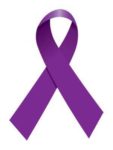
By Norah Al-Wetaid and Susan Pacheco
June is Elder Abuse Awareness Month. For the past six years, the Cambridge Council on Aging and Somerville-Cambridge Elder Services (SCES) have marked the occasion by working together to raise awareness about elder abuse issues and help connect people with local resources.
The Coronavirus pandemic has exacerbated many of the challenges we face as a society, and abuse is no exception. Fortunately, there are resources that can help. Drawing attention to this issue and spotlighting routes to assistance is our focus for Elder Abuse Awareness Month 2020.
Connections between pandemic and abuse were recently outlined in a New York Times story, which noted a sharp increase in domestic abuse reports in Chicago, and concerns from other major cities that people in abusive situations might be stuck at home and unable to access help.
While it is not yet clear if the pandemic led to a similar spike in elder abuse in Massachusetts, it’s safe to assume the problem hasn’t gone away.
By most accounts, elder abuse or neglect is common, impacting one in 10 older adults. It’s also rarely reported– by most estimates, only one in 14 cases are reported. Elder abuse and neglect are in our community as well: in 2019 SCES Protective Services investigated 279 incidents of abuse and provided 534 months of ongoing support for those elders.
Elder abuse can be physical, emotional, sexual or financial. It also includes neglect and self‐neglect. It affects elders across all income levels, cultures, genders, and races.
These are the most common signs of abuse:
- Unexplained financial loss
- Unexplained bruises or injuries
- Isolation
- Verbal abuse
- Threats
- Changes in mood or behavior
- Rapid decline in health
- Sudden confusion
- Unexplained weight loss
- Neglecting care needs
- Hesitation to speak openly
Staying in touch during this time of social distancing is another good way to help prevent abuse and neglect. While older adults are being advised to stay home whenever possible, remember that the phone, social media, and email are ways to connect with someone; someone you want to speak to. Social Distancing does not mean Social Isolation.
If you have concerns about elder abuse, neglect, self-neglect or financial exploitation, call the Mass Elder Abuse Hotline at 1-800-922-2275. The hotline is a gateway to your local Adult Protective Services program, which is dedicated to working with older adults to mitigate risk factors. All calls to the hotline and Protective Services activity are strictly confidential.
Your local Council on Aging can also connect you with helpful resources. The anti-domestic violence non-profits Transition House and RESPOND are also options. Whichever route you feel most comfortable with, we do urge you to say something if you have concerns.
During Elder Abuse Awareness month, the Cambridge Council on Aging and SCES normally host a purple ribbon campaign, where we distribute this symbol of elder abuse awareness along with information on the topic and resources to contact with concerns. Due to social distancing, we are instead mailing that information to our clients, with a paper ribbon they can hang on their wall or window. We encourage ribbon recipients, and anyone who wants to raise awareness about elder abuse, to post on social media using the hashtag #KnowElderAbuse during the month of June. Although we cannot physically be together this year, we hope to come together virtually as a community to raise awareness on this issue.
The Coronavirus has changed many aspects of our lives in recent months, but abuse and neglect remain concerns. More than ever, we need to look out for each other, to protect our most vulnerable residents and make our community as safe and healthy as possible.
Susan Pacheco is director of the Cambridge Council on Aging, which works to promote the health and independence of local older adults by providing meaningful social and recreational options. Norah Al-Wetaid is Director of Adult Protective Services Case Worker at Somerville-Cambridge Elder Services, a non-profit dedicated to supporting the independence and well-being of older adults, and people with disabilities.
Somerville-Cambridge Elder Services (SCES) is a non-profit agency that supports the independence and well-being of older people in Somerville and Cambridge. For more information, visit eldercare.org, follow us on Facebook and or contact the SCES Aging Information Center at 617-628-2601 or info@eldercare.org for free advice and guidance.















It is being better monitored in many cities now. Actually can be a bit of a pain but I understand. If I have to call the fire department for someone that fell both them and the police show up and they really grill you now. Which is good for physical abuse. I am used to it after calling them a few times for different people but I will say they work hard to make sure. Mental abuse would be tougher as I have also seen that done in ways I could never have treated my parents. It can also happen in a hospice facility where I have seen that first hand. I guess I just expect people would be more caring .